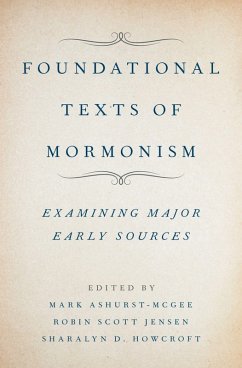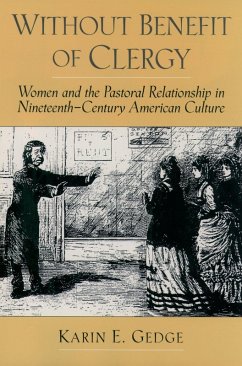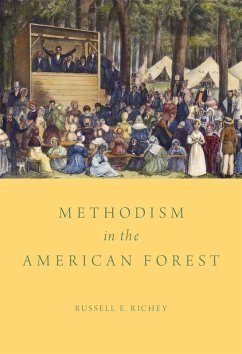
The New England Watch and Ward Society (eBook, PDF)
Versandkostenfrei!
Sofort per Download lieferbar
26,95 €
inkl. MwSt.
Weitere Ausgaben:

PAYBACK Punkte
13 °P sammeln!
The New England Watch and Ward Society provides a new window into the history of the Protestant establishment's prominent role in late nineteenth-century public life and its confrontation with modernity, commercial culture, and cultural pluralism in early twentieth-century America. Elite liberal Protestants, typically considered progressive, urbane, and tolerant, established the Watch and Ward Society in 1878 to suppress literature they deemed obscene, notably including Walt Whitman's Leaves of Grass. These self-appointed custodians of Victorian culture enjoyed widespread support from many of ...
The New England Watch and Ward Society provides a new window into the history of the Protestant establishment's prominent role in late nineteenth-century public life and its confrontation with modernity, commercial culture, and cultural pluralism in early twentieth-century America. Elite liberal Protestants, typically considered progressive, urbane, and tolerant, established the Watch and Ward Society in 1878 to suppress literature they deemed obscene, notably including Walt Whitman's Leaves of Grass. These self-appointed custodians of Victorian culture enjoyed widespread support from many of New England's most renowned ministers, distinguished college presidents, respected social reformers, and wealthy philanthropists. In the 1880s, the Watch and Ward Society expanded its efforts to regulate public morality by attacking gambling and prostitution. The society not only expressed late nineteenth-century Victorian American values about what constituted "good literature," sexual morality, and public duty, it also embodied Protestants' efforts to promote these values in an increasingly intellectually and culturally diverse society. By 1930, the Watch and Ward Society had suffered a very public fall from grace. Following controversies over the suppression of H.L. Mencken's American Mercury as well as popular novels such as Sinclair Lewis' Elmer Gantry and D.H. Lawrence's Lady Chatterley's Lover, cultural modernists, civil libertarians, and publishers attacked the moral reform movement, ridiculing its leaders' privileged backgrounds, social idealism, and religious commitments. Their critique reshaped the dynamics of Protestant moral reform activity as well as public discourse in subsequent decades. For more than a generation, however, the Watch and Ward Society expressed mainline Protestant attitudes toward literature, gambling, and sexuality.
Dieser Download kann aus rechtlichen Gründen nur mit Rechnungsadresse in A, B, BG, CY, CZ, D, DK, EW, E, FIN, F, GR, HR, H, IRL, I, LT, L, LR, M, NL, PL, P, R, S, SLO, SK ausgeliefert werden.













